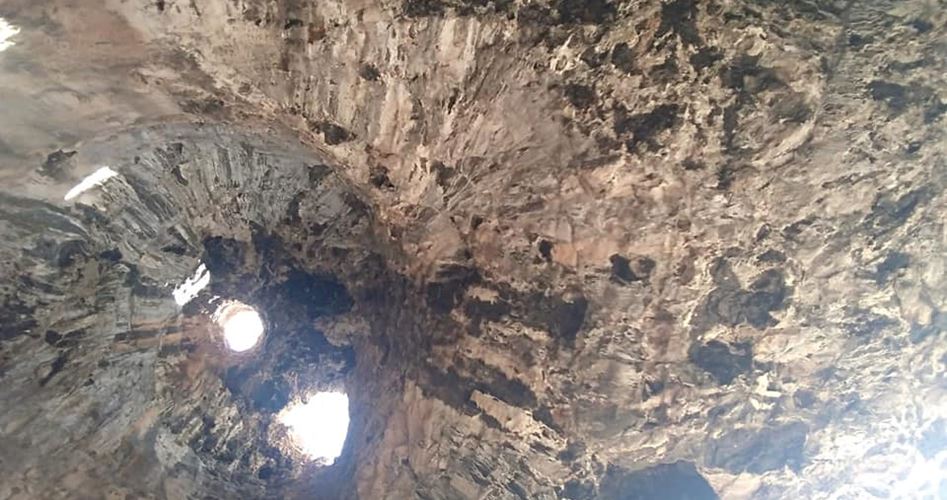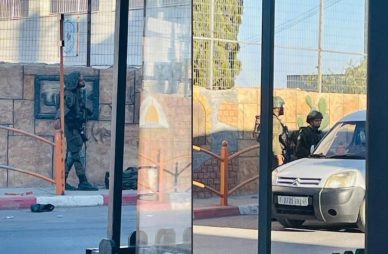To the west of the northern West Bank city of Ramallah lies the Shuqba Cave which is one of the historical landmarks that are still struggling to survive despite the many explosions caused by the Israeli Natauf quarry.
Israeli settlements encircle the mountains along the road leading to the city of Ramallah and the village of Shuqba distorting the identity of the place at the expense of Palestinian lands. The presence of the Israeli separation wall on thousands of dunums of the village deprives the residents of their land and separates them from their Palestinian extension inside the Occupied Territories in 1948 which could be seen from the top of its foothills.
According to historical studies the cave dates back to the second phase of the Stone Age during which the Natufians established their first civilization which witnessed a shift in human life from fishing and consumption to agriculture and food production.
Bilal Shalash a resident of the village says that the cave is estimated to be more than 10000 years old. Following detection and investigation it was revealed that agricultural raw materials were found in the old cave.
According to Shalash the cave suffers from the presence of the Israeli Natauf quarry in which explosives are used to break the rocks which leads to cracks and collapses in the cave in addition to the prevention of the occupation of any restoration in the cave including paving the roads leading to it because it is located in Area C (under full Israeli control).
The reason the cave was named Shuqba according to Mustafa Shalash is the existence of large cracks in the cave (which in Arabic means Shuq) and that a queen named Shaqba inhabited the cave and the cave was named after her but over time the name changed from Shaqba to Shuqba.
He notes that due to the fact the cave is located in area C of the West Bank (under full Israeli control) it is facing neglect. Furthermore the explosions made by the occupation led to cracks in the cave threatening its collapse.
He pointed out that the attempts of the residents to shed light on the issue of the cave are ongoing. There have been constant demands to improve the touristic attraction of the village as it lacks all touristic requirements although it has the potential to be so. Later Shuqba was listed as one of the most important Palestinian archaeological sites.













